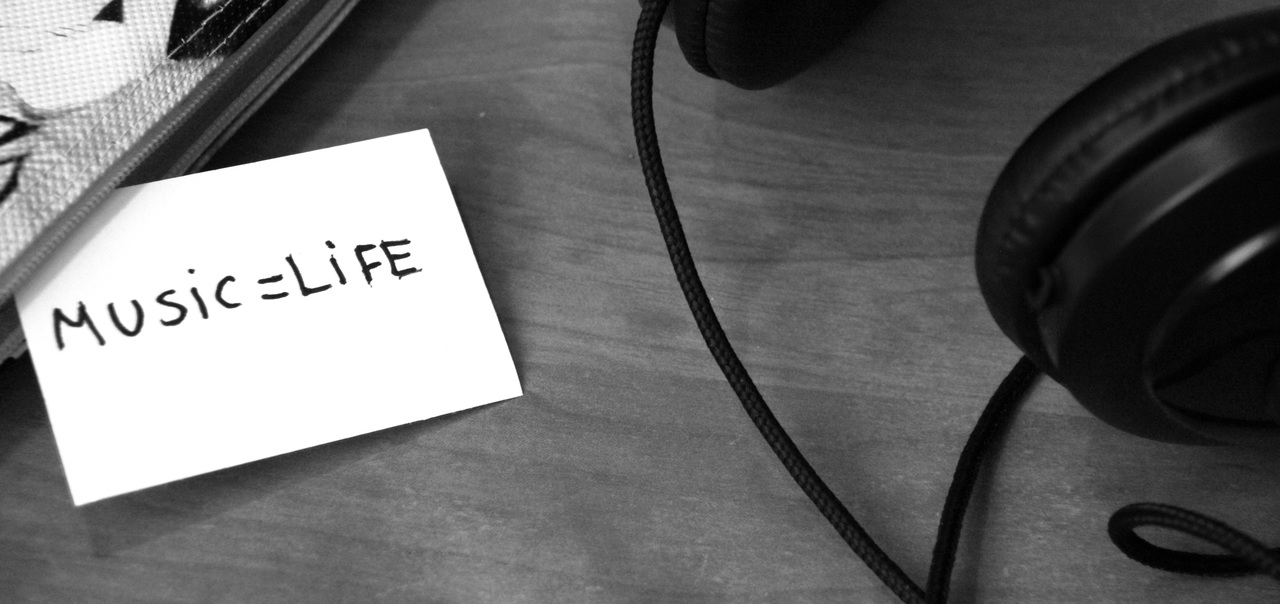5 Best Music Genres for Learning to Speak English

As language learners, we are often oblivious to the extraordinary nature of the world that surrounds us, particularly due to seeing mundane, everyday things which supersede our education as exactly such – mundane and everyday type of things; when, in fact, we should attribute our highest attention and admiration to their existence. One such example involves our day-to-day consumption of music and how it affects us in different areas of life. Whether we get happy after severe sadness, depressed after touching upon a certain memory or just need something to get us going through the day, music is the biggest jack of all trades that our world knows.

Furthermore, research has also shown the positive effects that listening to music can have on language acquisition since infancy. A recent study has analyzed and ranked music genres and artists based on the size of their vocabulary. The study goes to show that the average song-writing vocabulary size across all the musicians is 2677 unique words per 100 songs.
Depending on our different tastes and the variety of music genres we listen to, we can definitely notice a certain amount of these unique discrepancies between genres in terms of vocabulary type, number of words in a song, as well as the overall melodies and sounds that are present within.
As a language learner, you can greatly benefit from your consumption of music. You just need to know where to look (or listen to, for that matter). In fact, around 40 of the best-selling musicians have a vocabulary size within only 400 words per 100 songs. Talk about simplicity. That being said, here are the 5 best music genres for learning to speak English, in descending order. Let’s see if some of your favorite artists and music genres made the list.
5. Pop
Kicking off the list, we’ve got the omniscient pop music. Short and repetitive in nature, the pop genre offers a slew of easy-to-pronounce vocabulary and low-level grammar combined with some modern coinages such as ''show-stopper'', ''jaw-dropper'', etc. The content of the genre is fairly easy to understand and provides a great basis for mastering quick translation into the native languages of English learners. Moreover, the overall structure of pop songs definitely makes is easy to practice English pronunciation and memory, making the pop music genre an easy top 5 contender for our list. Some notable names in the genre include the legendary Michael Jackson, Britney Spears, Cher, and Katy Perry. As an example of pop music’s simplistic usage of the English language, we will take Katy Perry’s 2010 chart-topper ''Firework'', in which she sings:
Do you ever feel like a plastic bag ...
Drifting through the wind, wanting to start again?
Do you ever feel, feel so paper thin
Like a house of cards, one blow from caving in?
Do you ever feel already buried deep six feet under?
Screams but no one seems to hear a thing
Do you know that there's still a chance for you
'Cause there's a spark in you?
You just gotta ignite the light and let it shine
Just own the night like the 4th of July
With poetry-like references and easy-to-understand vocabulary, this excerpt is the embodiment of the pop genre. It provides great value for learning new, simple vocabulary, as well as practicing proper pronunciation, without worrying about having to stumble upon tongue-twisters or unfamiliar idioms. Simple in content, simple in purpose – this is the pop genre, and we simply cannot underestimate its role in learning the English language from a learner’s perspective.

4. R&B
Unlike pop, which touches upon a variety of topics, R&B’s focal point is plenty of romance, which provides a nice Segway into approaching and scoring in that area. While many consider it to be a smoother and more romanticized replica of American pop as far as lyrics go, it is something about the simplistic way that the English language is used in that appeals to listeners in different ways. The genre is also known for its vast usage of slang and dialectical expressions, such as ''tryna'' for ''trying to'' or ''I'ma'' for ''I will'' or ''I’m going to''. Further down the line, R&B artists are starting to hop on the train of expressing their political views and beliefs, opting for more socially sensitive vocabulary and wording – something that a language learner in the current millennium has to be quite aware of, especially when using newly coined words that are specific for online usage and can infer many different things.
Notable R&B artists include Usher, Rihanna, and Beyoncé, with Queen B being one of the best-selling artists ever in the genre. In her 2016 Kendrick Lamar-assisted and politically-charged song ''Freedom'', Beyoncé sings:
Tryna rain, tryna rain on the thunder ...
Tell the storm I'm new
Painting white flags blue
Lord forgive me, I've been running
Running blind in truth
I'ma rain, I'ma rain on this bitter love
Tell the sweet I'm new
I'm telling these tears, "Go and fall away, fall away"
May the last one burn into flames
This particular excerpt is loaded with oxymorons, particularly the last two quoted lines of the song, where Beyoncé’s tears ''burn into flames''. Wow. Talk about a powerful reference and a chance for an English language learner to not only understand vocabulary in an uncommon context but also go way beyond syntax. Furthermore, there is no excessively tongue-twisting language being used, so learning to speak English and properly pronounce new words is definitely simplified for even the youngest of language learners.

Note:
If you’re slightly disappointed that some of your favorite artists weren’t included in the first two categories, hold your thoughts right there. Since the two aforementioned genres are nowadays just amalgams of different elements across genres, country-pop and pop-rock crossovers such as Bruno Mars, Taylor Swift, and Robbie Williams are also included under this bracket. You’re welcome.
Moving on with the list…
3. Folk
While most folks don’t necessarily indulge in folk music these days (pun intended), it is high time we acknowledged the genre’s versatility, language simplicity, and vocabulary size when it comes to lyrics. In fact, any single artist alone from this genre, such as the legendary Bob Dylan, makes folk music a clear-cut top 5 candidate for contributing to the English language learning process. In his 1962 hit ''Man of Constant Sorrow '', Dylan sings:
Through this open world I'm a-bound to ramble ...
Through ice and snow, sleet and rain
Im a-bound to ride that mornin' railroad
Perhaps I'll die upon that train
I'm a-goin' back to Colorado
The place that I've started from
If I'd knowed how bad you'd treat me
Babe, I never would have come
Using blunt metaphors, short lines and stanzas, humming melodies, as well as elements from Old English which lack the modern-day past simple and past participle forms of irregular verbs, among other things, the folk music genre is certainly reason enough for any music lover and, more importantly, language learner to dive into the endlessness of what the English language has to offer.

2. Rock
One spot shy of the top of our list, we've got rock music. Since there is so much to say about the genre and how it affects the language learning process, I will try to summarize it in one short sentence (pun intended). Rock is there for the outspoken – a statement further solidified through cross-genres that span across metal, punk, hard rock, etc. Famous artists in the genre include U2, The Rolling Stones, Bon Jovi, and the all-time greats, The Beatles. Here is an excerpt from the legendary band’s classic song ''Hey Jude'' from 1988:
Hey, Jude, don't be afraid ...
You were made to go out and get her
The minute you let her under your skin
Then you begin to make it better
And anytime you feel the pain,
Hey, Jude, refrain
Don't carry the world upon your shoulders
For well you know that it's a fool
Who plays it cool
By making his world a little colder
Just by looking at the content, hardly any overly complicated sentence (or in this case, line) structure can be seen but rather an ever so slight use of idioms, such as ''let her under your skin'',''carry the world upon your shoulders'', and ''plays it cool''. The Beatles were a master at this. An English language learner may benefit greatly from adding idioms to their language regalia, especially if the individual vocabulary items present within the idioms are come across for the first time. Furthermore, advanced learners can occasionally stumble upon new idioms and double up on their current language knowledge.

1. Hip-hop
As if there was ever any doubt, the first prize for the ''Best Music Genre for Learning to Speak English'' goes to hip-hop. Loaded with multiple syllables within words, complicated rhyme patterns, infinite usage of vocabulary, double and triple entendres, and so on and so forth, it is clear why hip-hop is the unanimous winner here. It simply doesn’t get much better than this when it comes to finding a great basis for language learning. It offers the most and, as an English language learner, you can definitely take out the most out of it. Notable hip-hop names include 50 Cent, Kanye West, Jay-Z, and the King of Rap himself, Eminem. In his 2013 mega-hit ''The Monster'' featuring Rihanna, Eminem raps:
Fame made me a balloon 'cause my ego inflated ...
When I blew; see, but it was confusing
'Cause all I wanted to do is be the Bruce Lee of loose leaf
Abused ink, used it as a tool when I blew steam (wooh!)
Hit the lottery, oh wee
But with what I gave up to get it was bittersweet
It was like winning a used mink
Ironic 'cause I think I'm getting so huge I need a shrink
I'm beginning to lose sleep: one sheep, two sheep
Going cuckoo and cooky as Kool Keith
But I'm actually weirder than you think
Notice how this particular sample is the longest of them all in terms of vocabulary density, even though the song length for all our samples is practically the same. This entire excerpt makes idioms and vocabulary in context a headache for the youngest learners but it is a pot of gold for even the slightest bit of advanced or even intermediate learners. While understanding the ‘’overall’ meaning of words used in hip-hop might be a tad bit challenging, the chance to master tongue-twisting and pronunciation, word usage, grammar, and vocabulary expansion is undeniable.

So how should you approach this list as a language learner?
There are a couple of ways, actually.
The first one involves not even taking all these numbers and research into consideration. It is what we’ve been doing our whole lives, basically. Just singing, humming, repeating… and memorizing all of it subconsciously. The second is, of course, the weary analysis of every new song we hear to simply have an insight into how many new words and expressions we might learn. Long story short: stay away from that. Learning a new language should be fun, and that is exactly what music does.
Just think about it… if our school lessons had been written as songs rather than bulks of text on paper that we are used to seeing, how much more fun would school have been for us? Learning a new language constitutes much more than just education. It is about absorbing the language spoken everywhere around us and making the most out of it.

Now that things have been put into perspective, there is definitely going to be a fair share of our readership that credits their knowledge of English to their constant contact and exposure to music performed in English. While there is no direct correlation between the commercial success of a musician and their vocabulary size, there is definitely an unlimited pool of English vocabulary for the average language learner across music genres. In a nutshell, it is about accepting our everyday exposure to music and us singing our favorite songs as beneficial for our language mastery as much as the education that takes place within school walls, among all other great things. In the words of Henry Wadsworth Longfellow,
"Music is the universal language of mankind."
True, indeed. So, the next time you listen to a track by your favorite artist, make sure to shout out your gratitude to them for helping you somewhat master your English because it has been long overdue.
